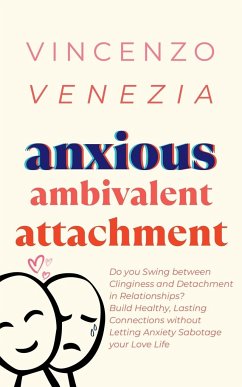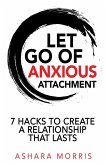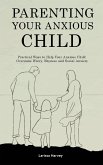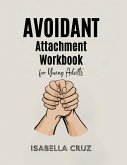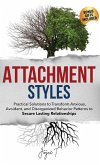Do you often find yourself worrying that your partner might leave you, or do you fear abandonment even in a stable relationship? Maybe you experience frequent jealousy, feeling that no matter your efforts, you're just not good enough? Are you concerned about making even minor mistakes, fearing they could ruin everything? Does your relationship make you feel like you're constantly walking on eggshells? Individuals with an ambivalent attachment style typically hold others in high regard but suffer from low self-esteem. They are sensitive and attuned to their partners' needs, yet they are plagued by insecurities and anxieties about their own worth in the relationship. Adults with this attachment style usually seek constant reassurance of their value and loveability. In intimate relationships, adults with ambivalent attachment may try to become indispensable to their partners, believing that being needed will prevent abandonment. However, this strategy often leads to doubts about whether they are loved for who they are or merely for their utility. Anxiety about ruining potential relationships hinders commitment and can lead to isolation. While understandable, this self-protective behavior can prevent meaningful connections and a fulfilling life. This book is recommended if you recognize these patterns in your relationship, indicative of ambivalent attachment: You often feel insecure about your partner's feelings towards you, leading to a constant need for validation and reassurance. You experience intense fear of abandonment, even in situations where your relationship is stable. Your need for emotional closeness feels overwhelming at times, and you might worry that your desire for intimacy pushes your partner away. You find yourself oscillating between highs and lows in your relationship, with emotions ranging from deep affection to intense anxiety. You are prone to feeling jealous, often stemming from your insecurities and fear of losing your partner. You take on a disproportionate amount of responsibility and blame in your relationship, often feeling that any issues are solely your fault. Your actions and reactions are often driven by the fear of being left alone, leading to behaviors that you might later regret. You have a tendency to be over-attentive to your partner's moods and actions, interpreting them as signs of potential rejection or disinterest. Despite your deep desire for a close relationship, you may unintentionally sabotage it due to your fears and insecurities. You might find yourself in a cycle of needing reassurance, yet struggling to fully accept it when offered, as deep down, you fear it might not be genuine. If you feel in tune with this description of life, remember that it is not your fault and that because you have experienced bad situations in life, you have become sensitive and more compassionate than others. Can the ambivalent attachment style be changed? Fortunately, there are methods in this manual to identify and interrupt dysfunctional patterns and cultivate new ones that are helpful and tailored to you. It is important to do this for yourself, your loved ones and, eventually, your children. Stop that feeling of never being enough forever.
Hinweis: Dieser Artikel kann nur an eine deutsche Lieferadresse ausgeliefert werden.
Hinweis: Dieser Artikel kann nur an eine deutsche Lieferadresse ausgeliefert werden.

